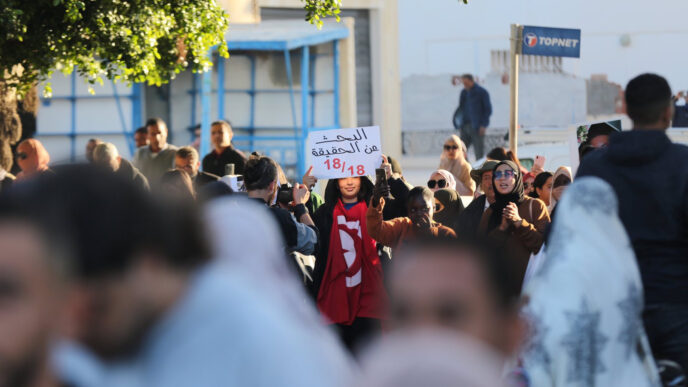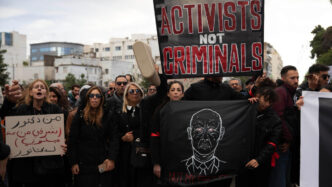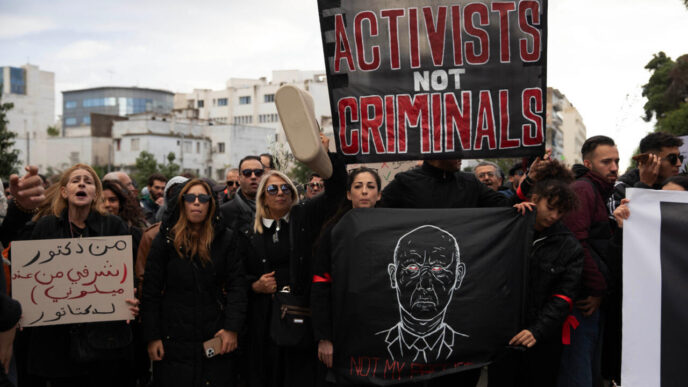Tunisian authorities have suspended the activities of the country’s prominent women’s rights organisation, the Tunisian Association of Democratic Women (ATFD), prompting outrage among activists and rights defenders.
Founded in 1989, the ATFD has long been a key voice in Tunisia’s struggle for democracy and gender equality, playing a major role in opposing the former dictatorship of Zine El Abidine Ben Ali, who was ousted in the 2011 revolution.
The group’s president, Raja Dahmani, told AFP on Friday that she had received an official order suspending the ATFD’s activities for one month, citing alleged violations of association regulations.
Dahmani rejected the accusations, insisting that the organisation “fully complies with legal procedures” and announcing plans to challenge the suspension in court.
The move sparked immediate backlash from Tunisia’s civil society. The Tunisian Forum for Economic and Social Rights (FTDES) issued a statement on Saturday, October 25, expressing solidarity with the ATFD, describing the suspension as part of a “continuing campaign to criminalise independent civic action and shrink civic space in Tunisia.”

The FTDES added that similar measures have already impacted dozens of non-governmental organisations.
Prominent feminist and law professor Sana Ben Achour also denounced the decision on social media, calling it a serious attack on civil liberties.
Since President Kais Saied’s power grab in 2021, local and international human rights groups have accused his administration of undermining democratic freedoms.
NGOs have reported growing restrictions on dissent and a crackdown on independent organisations.
Local media outlets have recently reported that prosecutors have opened an investigation into foreign funding of civil society groups, including FTDES, I Watch, Al-Bawsala, and the investigative media outlet Inkyfada.
According to the Business News website, 47 associations have already been dissolved as part of the probe, and authorities have frozen the assets of 36 others.
The ATFD’s suspension is the latest sign of mounting pressure on Tunisia’s once-vibrant civil society, raising fears of a return to authoritarian-style governance.


 Trending
Trending 









